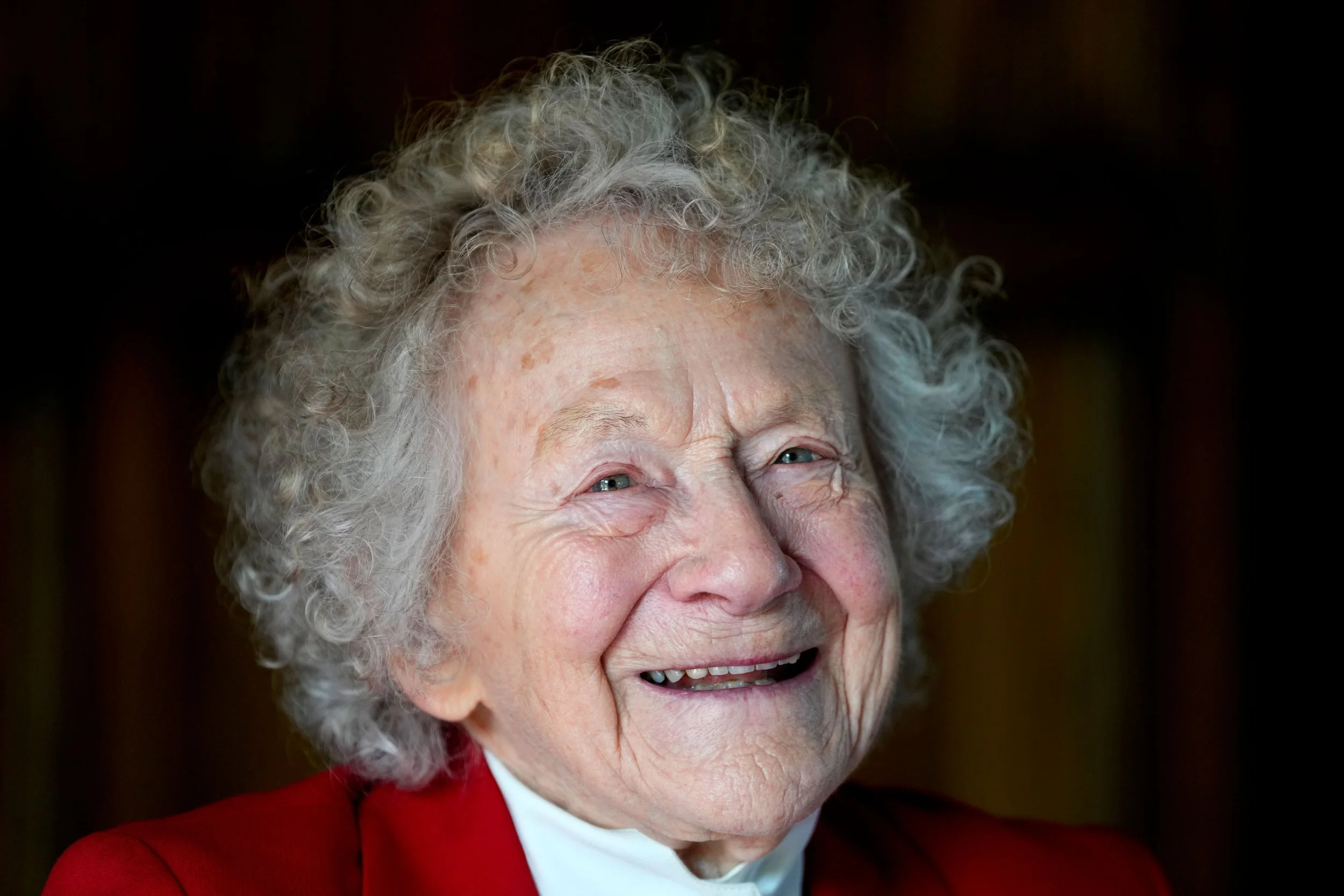Dorothea
By Danica Kirka
Dorothea Baron got a sneak preview of the Normandy landings from a tower overlooking the Solway Firth in southwestern Scotland.
During the spring and summer of 1943, she and her colleagues kept watch over the troops who tested the prototypes for two prefabricated harbors that would be constructed in the hours after D-Day to ease the delivery of men and equipment to the battlefield. Whenever someone got into trouble, Baron would unfurl her semaphore flags and signal for help.
"We were watching over them, shall we say,” she said. “If they got into difficulty, we would then inform their headquarters, their people on the land. Boat so and so has been hit and things like that.”
Baron, then an 18-year-old rating in the Women’s Royal Naval Service, was a small part of the team that developed the Mulberry harbors, the system of breakwaters, pontoons and floating roadways that were built at Omaha and Sword beaches. Some 2 million soldiers, 4 million tons of supplies and 500,000 vehicles rolled through the two harbors by the end of 1944, contributing to Allied victory in the Battle of Normandy.
Baron just wanted to do her part.
"I don't think we were ever given any credit for anything,” Baron said. “You were finished. They finished with you. You've done your bit to be useful then. Now you're on your own, mate."
It was a crushing blow for Baron, who had been determined to join the Wrens _ even if she had to cheat a bit.
Standing less than 5-feet 3-inches tall, Baron was too short for the service. So she improvised, piling her hair up in a tall bun and putting cardboard in her shoes.
“I stood very tall and they said, ``Hmmmm,’’ she recalled. “And then they saw I was so determined, they allowed me to crawl in.’’
So the woman nicknamed Pixie became a signaller in the Wrens.
Given the limitations of technology at the time, that meant learning semaphore to send messages during the day and Morse code for nighttime communications.
At the time she was working in the observation tower, Baron had no idea that the men she was watching over were training for the biggest operation of the war. All she knew was that it was her job to prevent them drowning as they struggled with tides and waves and tons of steel.
She’ll be thinking about those memories when she visits Normandy next month for the 80th anniversary of the landings.
"I'm going to be thinking: I wonder if there's any Mulberry left underneath on the sand and have a look through the waters to see,’’ she said. “And I'm going to be thinking, this is where we started to drive the Germans away from Europe, from our part of Europe and the French part of Europe.”
___________
BEYOND THE STORY



